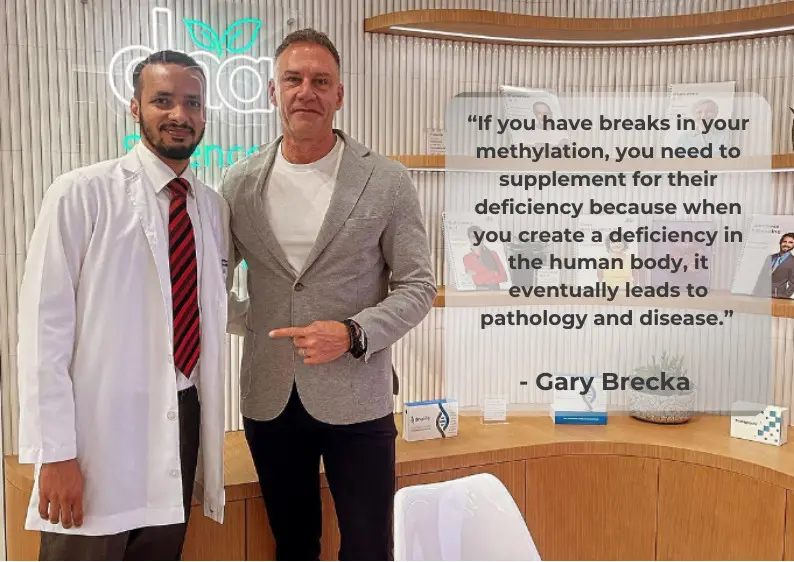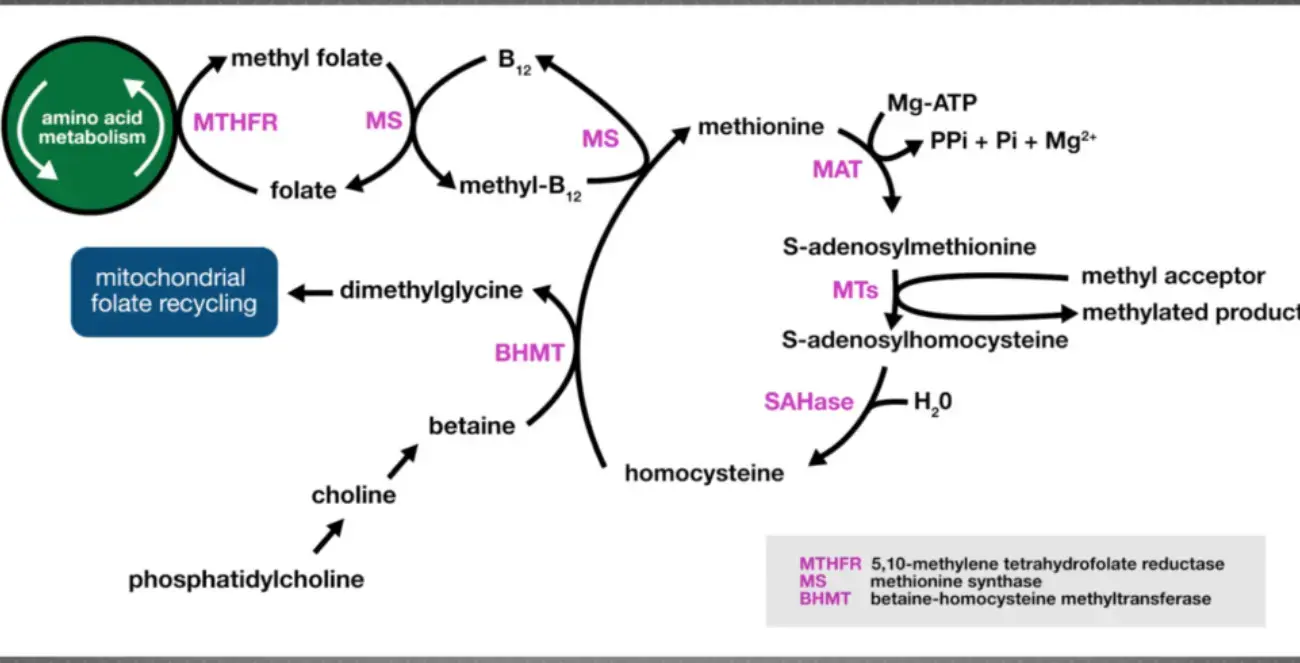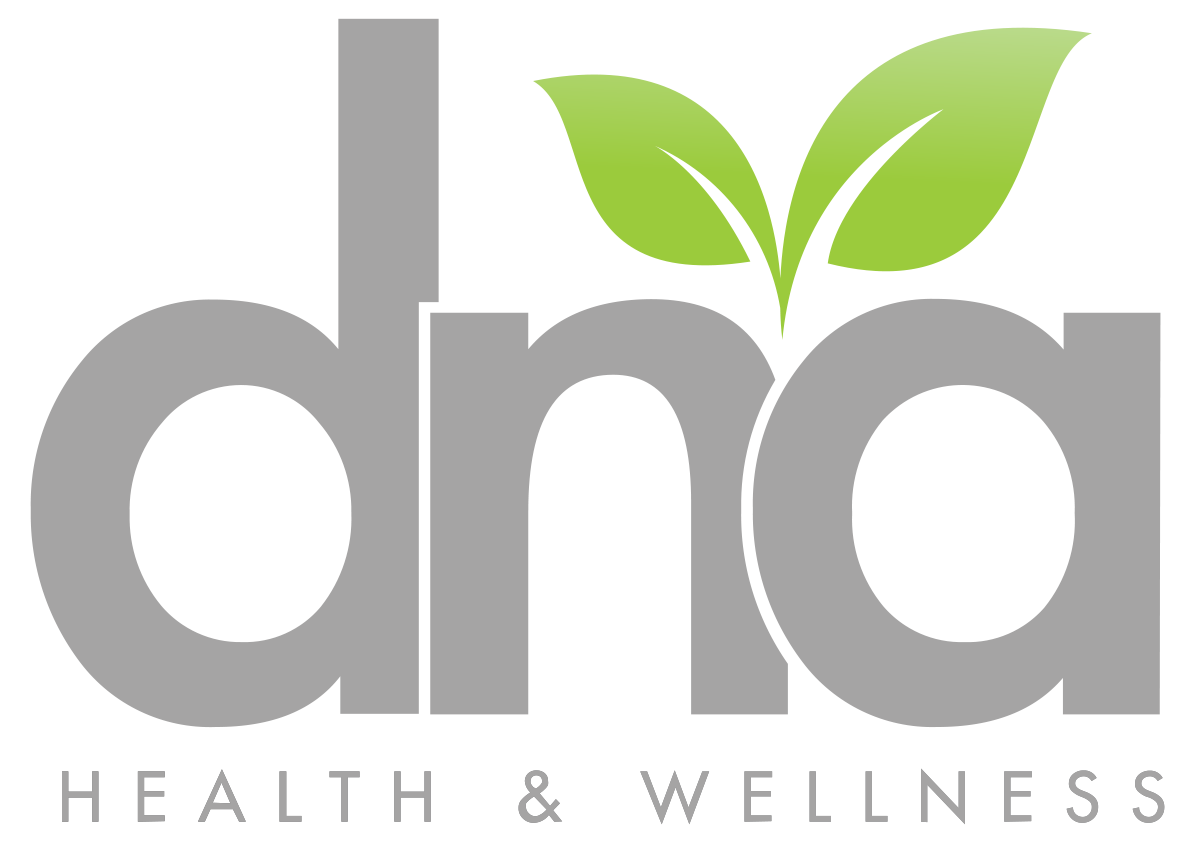DNA Health & Wellness
Longevity Monthly
December issue
Navigating Methylation - MTHFR

Latest Development

There have been a number of health and wellness gurus pushing methylation recently, none more so than Gary Brecka, human biologist, whom we had the pleasure of welcoming to our Marina Branch last month. As the only specialised longevity clinic in the region, we’ve had many people reaching out asking for methylation genetic tests or testing for a genetic SNP (single nucleotide polymorphism) called MTHFR.
Let’s first of all cover some basics about methylation, what it is and why you should care about it.
Why’s it important
Methylation is a vital metabolic process that happens in every cell and every organ of our body. Life would simply not exist without it. It takes place more than a billion times per second in the body.
The process of methylation captures raw materials in the body and turns them into usable compounds. When methylation is functioning properly, a methyl group (consisting of four atoms — one carbon and three hydrogens), will transfer from one molecule to another.
It’s like turning on a light switch in the body. When methylation is turned on, this process can optimize heart health, sleep, maintain DNA, manage inflammation, hormones, gut health, mental health, and so much more. When methylation is turned off, many processes of the body will struggle to function at the highest level.
…and those are just a few of the benefits of optimal methylation.
How do I know if I have a problem…
Mutations in certain genes that code for enzymes in the methylation process, can lead to decreased activity of those enzymes and, thus, decreased activity of methylation in general. The most important enzymes in that cycle are MTHFR – that’s probably the one that’s best known; it stands for methylenetetrahydrofolate reductase. Two different genes (C677T and A1298C) are usually measured when a MTHFR test is ordered; either through a simple blood or swab test. According to studies, the majority of the population will carry some sort of functional mutation in either gene.
The really key thing to understand is that MTHFR genes do not work in isolation, but rather in tandem with many other genes, such as CBS, COMT, VDR, MTR, and MTRR that are involved at different parts of the same cycle. Therefore, if you have a mutation in a single gene, you may have a predisposing factor that could potentially lead you to having problems with methylation, but it is not guaranteed. In the same way that changes in the environment may determine whether someone is indeed affected or symptomatic. This is why we recommend looking more broadly at genetic SNPs, like our DNA Health panel, for a complete actionable insight.
A homocysteine level can also be measured in the blood and when elevated can suggest a mutated SNP in methylation genetics; however, the gold standard would be to test for the SNPs directly.
If you find out you’re a carrier of MTHFR, don’t panic. It’s possible you might not exhibit any symptoms. If you do, those symptoms are manageable and there are a number of nutrients, supplements, and interventions available.
How can we support methylation…
Food and nutrients have the ability to impact how our genes are expressed.
The process of methylation produces the most active form of folate in your body known as methyl-folate. Therefore, one vitamin we know does a lot of good for poor methylation patients is folate. Especially if you suspect MTHFR, the optimized forms of folate (methylfolate, folinic acid) should be on your list of essential daily supplements.
Additionally, at each step in the cycle, the different enzymes (CBS, COMT, VDR, MTR, and MTRR) have other important cofactors that they rely on to function properly and continue on to the next step. These cofactors are critical to the enzymes functioning properly, including choline and the active forms of B-vitamins such as vitamin B12 (methylcobalamin), and vitamin B6 (pyridoxyl-5-phosphate).

Half of methylation is supported by folate and B12, half by choline or betaine.
Image credit: Chris Masterjohn
Key takeaway
Methylation genetics are very common and there is a high probability to either you or a family member is a carrier. However, a methylation diagnosis isn’t the end of your physical health — it’s simply a clue that helps you approach treatment and healing.
To find out more or if you would like to book a consultation with one of our doctors, please contact us on 04 573 6500.



















